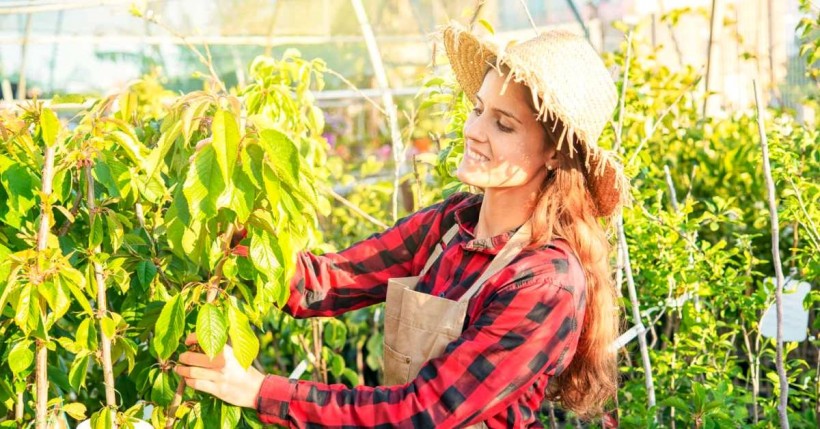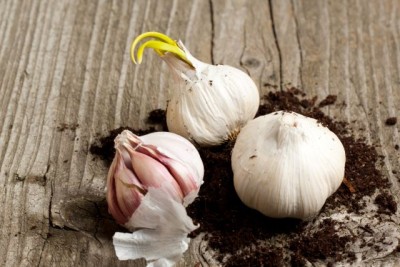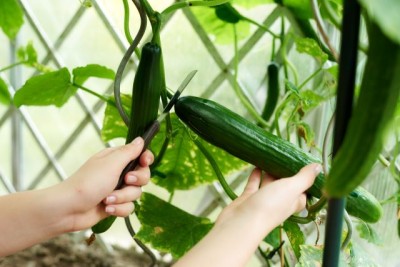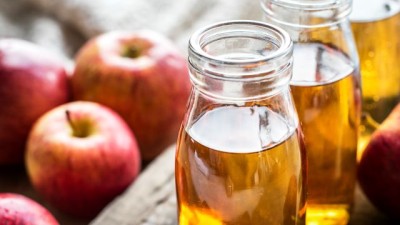10 Reasons Why Gardening Is Good For You
Warning: Undefined variable $post in /home/dietofli/public_html/wp-content/plugins/code-snippets/php/snippet-ops.php(582) : eval()'d code on line 3
Warning: Attempt to read property "ID" on null in /home/dietofli/public_html/wp-content/plugins/code-snippets/php/snippet-ops.php(582) : eval()'d code on line 3
The estimated reading time is 12 minutes
Warning: Undefined variable $post in /home/dietofli/public_html/wp-content/plugins/oxygen/component-framework/components/classes/code-block.class.php(115) : eval()'d code on line 3
Warning: Attempt to read property "ID" on null in /home/dietofli/public_html/wp-content/plugins/oxygen/component-framework/components/classes/code-block.class.php(115) : eval()'d code on line 3

Besides being highly enjoyable and a great way to keep yourself active, gardening offers a variety of health benefits. Gardening can do wonders for your mind, body, and soul and this has been backed by science too.
Living in a fast-paced society where we’re exposed to all kinds of stressors every day, the so-called “lifestyle diseases,” like depression, anxiety, heart disease, obesity, and stroke, are becoming a serious public health problem. Studies indicate that spending time in nature has a long-term and profound effect on health, including obesity, symptoms of anxiety and depression, longevity, as well as birth weight. (1,2,3,4).
And gardening is undoubtedly one of the best ways of being in contact with nature. Research has shown that gardening activities improve one’s psychological well-being, cognitive function, sense of community as well as life satisfaction (5).
So, in this article, we’re going to explain in what ways gardening can benefit your physical and mental health. Without further ado, let’s get to it.
10 Health Benefits Of Gardening
1. It Can Improve Your Mental Health
We already said that gardening can improve symptoms of anxiety and depression (6).
Moreover, one Australian study found that gardening was more effective than education or walking in protecting against dementia. Additionally, this activity changes the EEG as well as improves self-esteem and symptoms of post-traumatic stress disorder (7).
Then, one systematic review has indicated that gardening or exposure to the garden improves mood and reduces stress. It’s also been found that therapeutic gardening can be effective in treating dementia and Alzheimer’s disease (8).
2. It Can Calm You After You’ve Faced A Stressful Situation
Thirty allotment gardeners were included in one study which examined the effect of gardening on recuperation from stress. Participants were first exposed to a stressful task and then, one group was asked to spend thirty minutes reading in their garden and the other group was assigned to thirty minutes of gardening. The results showed that cortisol levels decreased in participants in both groups. However, there was a considerably stronger decrease in participants in the gardening group (9).
3. It Can Help Your Body Fight Diseases
Just like plants produce their own food and oxygen through the process of photosynthesis, your body is capable of this process as well.
For instance, to produce vitamin D, which is one of the most essential vitamins your body needs in order to function properly, your skin uses sunlight. Research suggests that spending half an hour in the sun in a bathing suit in the summer can produce 50,000 IU vitamin D in most white people and 8,000 to 10,000 IU in dark-skinned people. How much vitamin D will be produced in your body depends on several factors, such as your excess body fat, skin pigment melanin as well as what type of clothing or sunscreen you’re wearing (10).
Vitamin D plays an important role in keeping your immune system balanced and strengthening your bones. In addition, studies have also indicated that exposure to the sun can help reduce your risk of developing:
- Colorectal cancer
- Breast cancer
- Prostate cancer
- Bladder cancer
- Liver disease
- Multiple sclerosis (MS)
- Non-Hodgkin’s lymphoma
Low vitamin D levels increase the risk of developing metabolic syndrome, psoriasis, and type 2 diabetes (11).
4. It Can Improve Your Mood And Self-Esteem
Studies have indicated that engaging in community gardening improves self-esteem (12,13).
Additionally, one 2011 study included adults with clinical depression and they were asked to participate in a therapeutic horticulture program for 12 weeks. The results showed that depression in participants was reduced and this change persisted for 3months after the program ended. Increased social activity was noticed in participants as well (14).
5. It Helps You Maintain A Healthy Weight And Enables You To Have A Good Night’s Sleep
Did you know that gardening is defined as an exercise by the Centers for Disease Control and Prevention (CDC)?
For example, gardening activities, such as lawn mowing or raking leaves belong to the category of moderate-intensity activity, whereas chopping wood fits into the category of vigorous-intensity activity.
Regardless of what type of activity you’ll choose to engage in, not only do gardening activities, such as cutting grass, raking leaves, chopping woods, digging as well as shovelling, help you burn calories, they also require you to use every muscle in your body (15).
In addition, research has shown that gardening activities may reduce childhood obesity and offset age-related weight gain (16,17).
And one 2015 study has found that gardening is associated with better sleep habits (18).
6. It Can Help You Handle Eco-Anxiety
People who have eco-anxiety fear and worry about ecological disasters and environmental damage. Their daily stress levels are increasing due to the consequences of climate change. And what scares them the most is the feeling that they can’t do anything to prevent or change it.
To handle the negative effects that eco-anxiety has on your health, you can engage in gardening activities with the aim of making the consequences of climate change less severe.
The National Wildlife Federation suggests taking the following actions if you want to contribute less to carbon pollution and in that way reduce your eco-anxiety:
- Compost garden as well as kitchen waste
- Reduce your water consumption by using rain barrels and drip irrigation as well as mulching
- Limit your use of gasoline-powered tools. Use more tools, such as rakes, hand clippers, and push mowers
- Replace light bulbs in your garden with LED bulbs
- Replace invasive plants in your garden with native plants
- Plant more trees to absorb carbon dioxide from the atmosphere
- Turn your garden into a Certified Wildlife Habitat (19).
7. It Gives You The Opportunity To Consume Healthy Food
Is there anything healthier than the food that you grow yourself? We believe that you’ll agree that the answer is evident.
Growing your own fruits and vegetables means growing plants that are free of harmful chemicals and pesticides.
In addition, children that engage in gardening activities have a higher likelihood of consuming fruits and vegetables, including trying some unusual green or other foods that they’d never try if they were bought in grocery stores or supermarkets.
Moreover, there’s no need to emphasize that fruits and veggies produced at home taste way better.
8. It Promotes Feelings Of Connection
Working in a garden, be it a community, family, or school garden, with people that have different backgrounds and abilities is a great way of broadening your experience and expanding who you know.
In one study, 16 secondary-school youths took participated in a project in which they were asked to express their experiences regarding gardening and food through writing and photography.
The participants associated both themes with relaxation. They also reported that their engagement with gardening enabled them to connect with other young people and adults as well as improve their personal growth and health (20).
9. It Can Help Improve Your Memory And Cognition As You Age
Physical activity has been shown to be effective in delaying brain ageing as well as degenerative conditions, such as multiple sclerosis and Alzheimer’s disease. In addition, physical activity improves memory and cognitive function (21).
41 participants, aged over 65 years, were included in one study and were given low-to-moderate intensity gardening activities, such as cleaning a garden plot, raking, digging, fertilizing, transplanting plants, and watering with a watering can. After the participants had participated in these activities, researchers found increased levels of brain nerve growth factors (22).
Moreover, one systematic review of randomized controlled trials has found that horticultural therapy may be effective in treating mental conditions, such as depression, schizophrenia, and dementia (23).
10. It Can Be A Helpful Tool In Addiction Recovery
Gardening has been included in a lot of addiction recovery programs for a long time.
One study has found that the cultivation of plants is an effective tool for people who have alcohol addiction since certain plants trigger positive emotions, memories, and desires through smelling, seeing, tasting, and touching (24).
Moreover, in one study, people in a mental health recovery and rehabilitation program, Natural Recovery, were asked to choose horticulture or art/music as their natural therapy. The results of the study showed that those participants that chose horticulture completed the recovery and rehabilitation program at a higher rate and expressed increased satisfaction compared with participants that chose art or music (25).
Why Does Gardening Make Us Happy?
Getting sweaty and dirty when raking leaves, shovelling, or digging in your garden can make you happy, believe it or not.
When gardening, you can inhale Mycobacterium vaccae, which is a bacterium found in soil. This bacterium has been found to activate neurons that release the “feel-good hormone” serotonin in the brain.
In addition, when you engage in gardening activities, this decreases your stress levels. It also helps you divert your attention away from everyday problems and worries, it brings you peace, it makes you feel relaxed, and it gives you unexplainable joy.
Besides being soothing and relaxing, there’s something highly satisfying about gardening, such as waiting for the fruits and vegetables in your garden to ripen so that you can harvest them. Plus, gardening teaches you how to be patient.
And last but not least, some people claim that when you harvest products from your garden, dopamine, an essential brain chemical that affects your mood, is released. The same process actually happens in people who have compulsive shopping disorder.
So, when you’re getting your hands dirty, you are making yourself happy as well.
Do Gardeners Have Better Immune Systems?
You may find this hard to believe, but gardening can improve your immune system in several ways:
Sleep
You need to get 7-8 hours of sleep each night so that your body can function properly. Not getting enough sleep can hinder the production of proteins and antibodies which fight infections in your body and make you more susceptible to diseases.
Working in the garden makes your body tired and as a result of this, you fall and stay asleep more easily.
Exercise
Being physically active benefits your physical and mental health. And all gardening activities are a great form of physical exercise.
Doing moderate-intensity exercises causes pro-and anti-inflammatory cytokines to be released in the body and the lymphocyte circulation to increase. It also reduces inflammation and changes the composition of “younger” and “older” immune cells.
Sun exposure
When you expose your skin to sunlight, vitamin D is produced in your body. And we already said that this vitamin is very important for your immune system. In fact, increased susceptibility to infection and a lot of autoimmune diseases are associated with vitamin D deficiency.
Bacteria
Thanks to the non-pathogenic bacterium Mycobacterium vaccae which is present in the soil, gardening activities may boost your immune system by activating cytokines as well as T-cells in your body.
Reducing stress
When you’re under stress, your body produces its main stress hormone cortisol. However, increased levels of cortisol in your body can compromise your immune response.
In addition, increased levels of stress reduce the white blood cells, which play an important role in fighting off infection. Low lymphocyte level increases your risk of contracting viruses.
And we already said that gardening has been shown to be effective in reducing stress levels.
Does Gardening Make You Smarter?
Studies performed on mice show that gardening can improve cognitive function by breathing in the soil-derived bacterium Mycobacterium vaccae.
In one study, mice that were fed this bacterium before and during a maze learning task completed the maze task twice as fast as mice in the control group. Moreover, they kept running the maze faster than controls for around one week (26).
In addition, another study showed that cognitive function was increased in mice immunized with M. vaccae (27).
How To Get Started With Gardening
As gardening doesn’t require a large area of land, you don’t need to have a vast backyard or be especially skilled at gardening. If you don’t have a lot of experience, you can try growing plants in containers. For instance, you can grow cherry tomatoes in a bucket which you have made holes in the bottom of and cleaned thoroughly.
In addition, you can find plenty of information about the basics of gardening in books and online. You can also get in contact with other skilled gardeners and learn a lot from their experience.
It’s also important to protect your health when gardening. So, here are a few precautions you should take while engaging in gardening activities:
- Always wear long pants, goggles, a cap, and gloves to protect yourself from the sun, sharp tools, and bug bites.
- Be careful how you use fertilizers and pesticides. They can be harmful if not used properly.
- Wear sunscreen.
- Ensure you’re vaccinated against tetanus as the bacterium Clostridium tetani lives in the soil.
- Drink plenty of water.
- Use bug spray.
Conclusion
- In addition to being a relaxing and enjoyable activity, gardening is very good for you since it can benefit your physical and mental health in many ways.
- Gardening can improve your cognitive function, psychological well-being, and life satisfaction.
- Gardening is good for your mental health as it can improve symptoms of depression, anxiety as well as self-esteem. It has also been found that therapeutic gardening can be helpful in treating Alzheimer’s disease and dementia.
- Other health benefits of gardening include:
- It can calm you after you’ve faced a stressful situation
- It can help your body fight diseases
- It can improve your self-esteem and mood
- It enables you to have a good night’s sleep and maintain a healthy
- weight
- It can help you handle eco-anxiety
- It gives you the opportunity to eat healthy foods
- It promotes feelings of connection
- It can help improve your memory and cognition as you age
- It can be a helpful tool in addiction recovery
- Science shows that gardening can make you happier and smarter due to the soil-derived bacterium Mycobacterium vaccae.
- Gardening activities may improve your immune system as well.
- Gardening doesn’t require a large area of land. It only requires a little experience. If you’re not very skilled at gardening, you can find information about the basics of this activity in books and online.
- When working in the garden, you need to make sure you protect your health.














